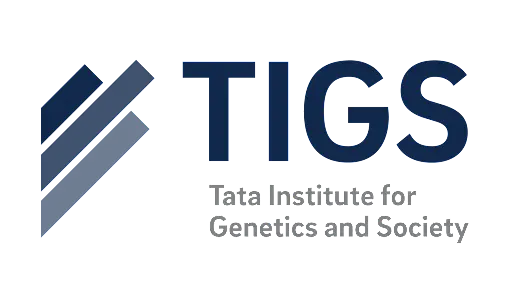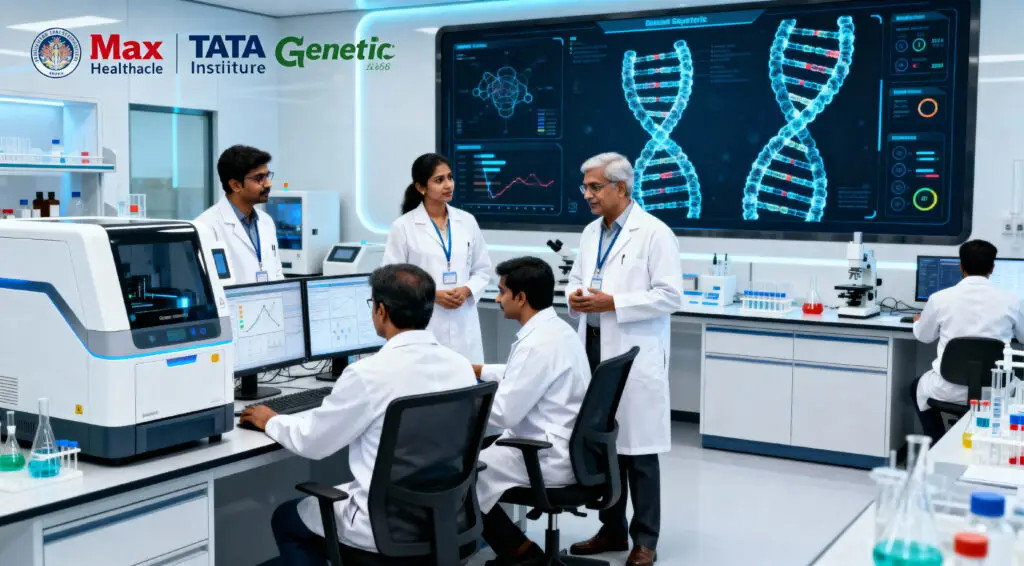Max Healthcare and Tata Join Forces on Genomic Research
Max Healthcare and the Tata Institute for Genetics and Society have signed a memorandum of understanding (MoU) to speed up genomic science and new ideas in healthcare. The goal of the alliance is to improve India’s ability to use precision medicine and treatment methods based on evidence.
The agreement stresses how genetics may change how patients are treated, especially when it comes to finding and treating complicated diseases. Both institutions want to close the gap between what is learned in the lab and what is done in the hospital by integrating research skills with clinical experience.

Focus on Personalized Medicine and Genetic Profiling
The MoU’s main goal is to provide personalized treatment programs based on genetic testing. Researchers want to use genetic data in clinical procedures so that medical decisions may be made based on each patient’s unique biological composition.
This technology might help doctors come up with better ways to treat patients, especially those whose diseases don’t respond to standard treatments. It also fits with the worldwide trend toward precision healthcare, where medication design is based on each person’s unique genetic information.
Collaboration on Rare Disease Research
The alliance will put a lot of money into investigating uncommon genetic illnesses, which are typically ignored because there isn’t enough patient data. Scientists will look into early detection methods and possible genetic therapies to enhance patient outcomes through joint research.
India’s increasing genomic infrastructure makes it possible to do more studies like this. The goal of the partnership is to develop national guidelines for screening programs that can find people who are at risk and let doctors respond quickly.
Recommended Article: AI Tools Transform Clinical Practice Across Healthcare
Genomic Insights in Neonatal Care
Another big area of attention will be caring for newborns using genetic information. The institutes hope to employ nextgeneration sequencing technology to find congenital disorders soon after delivery.
Genetic testing done early on might enable doctors to give tailored treatments, which would improve the chances of survival and longterm health for babies. The goal of the partnership is to bring these genetic capabilities into Max Healthcare’s neonatal intensive care units (NICUs).
Training and Knowledge Exchange
The MoU contains plans for cooperative conferences, workshops, and training programs to help raise a new generation of genetic researchers and doctors. These meetings will provide people a chance to talk about new findings, best practices, and case stories from research that is still going on.
Experts from both schools will work together to create instructional modules that focus on applied genomics, bioinformatics, and clinical translation. This would assist people from different fields in working together and improve India’s human capital in the biosciences.
Expanding India’s Genomics Ecosystem
The agreement shows that India wants to be a leader in biotechnology and genomic medicine. India has a huge population and a wide range of genetic traits, which makes it a great place to create genomic databases that are particular to certain groups of people.
Partnerships like this one are intended to speed up the country’s development toward largescale datadriven healthcare. This will help improve national healthcare standards and add to the world’s genetic knowledge.
A Step Toward Precision Healthcare in India
Max Healthcare and the Tata Institute for Genetics want to change the way illnesses are identified and treated by combining their expertise in clinical care with the latest genetic research. The project promises to be the 1st of its kind in Indian medical research to bring together business and academics.
This partnership is more than just a research relationship; it’s a big step toward a future where personalized medicine is the standard of care and genetics helps patients get better.























